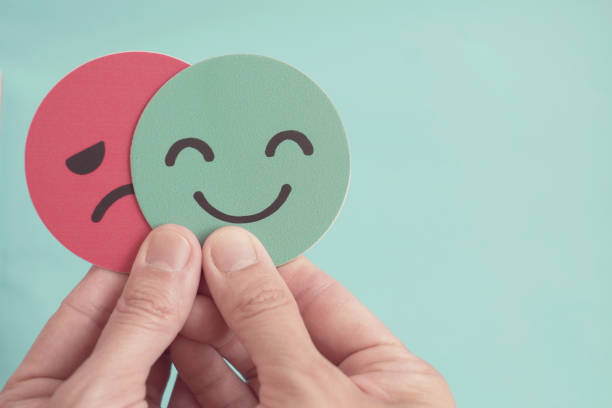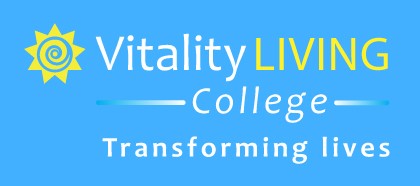EFT vs CBT: Which Therapy Is Right for You?

In this article, you will learn about EFT vs CBT - which therapy fits your needs best. You'll also explore how these treatments help with mental health issues like anxiety disorder and depression. Discover the power of EFT Tapping and the thoughtful approach of CBT to begin your journey to better emotional well-being.
WHAT IS EFT TAPPING | EMBRACING EMOTIONAL FREEDOM TECHNIQUES (EFT) | WHAT IS CBT | COGNITIVE BEHAVIOURAL THERAPY: TRANSFORMING THOUGHTS | EFT VS CBT THERAPY: A COMPARATIVE ANALYSIS | EFT TAPPING COURSES | THE BEAUTY OF EFT TAPPING | COGNITIVE BEHAVIOUR THERAPY: SUCCESS STORIES AND EFFICACY | CBT: AN EVIDENCE-BASED APPROACH | CHOOSING THE RIGHT THERAPY FOR YOU: EFT OR CBT | THE ROLE OF THERAPY IN TREATING MENTAL HEALTH ISSUES | MANAGING DEPRESSION: A LOOK AT EFT AND CBT | INTEGRATING THERAPIES FOR COMPREHENSIVE CARE | YOUR PATH TO EMOTIONAL WELL-BEING
Choosing between EFT (Emotional Freedom Techniques) and CBT (Cognitive Behavioural Therapy) can feel confusing and daunting. It's common to feel confused when you hear terms like 'emotion focused therapy' or 'cognitive behavioural therapy.'
It sounds complicated! But don't worry; this article will help you understand these therapies in simple words.
Starting with Emotional Freedom Techniques or EFT, have you ever heard about 'tapping'?
It's an alternative therapeutic technique where you use your fingertips to tap on specific points of your body. It's a part of 'emotionally focused therapy.' People use it to help calm their feelings, especially when anxious or upset. It's like having a unique tool to help manage those challenging emotions.
While CBT or 'cognitive behaviour therapy' is all about your thoughts. Sometimes, your mind can be like a little trickster, making you believe things that aren't true, especially when you are feeling down or worried. CBT teaches you how to catch these tricky thoughts and change them into more helpful ones. It's like being a detective in your own mind!
The next set of questions on your list are 'Which therapy is better: CBT or EFT?' or 'Is EFT more effective than CBT?'
The truth is, it really depends on you and what you're going through. Mental health is like a unique journey for everyone. Some people find EFT really helpful, especially if they're dealing with stress or anxiety. Others might find CBT more useful, especially when struggling with negative thoughts.
No matter what you're going through, you're not alone. Everyone goes through a similar journey of finding the best way to explore and support their mental health.
WHAT IS EFT TAPPING?
Do you remember learning how to ride your bicycle when you were little? At first, it felt really hard, but with practice, you get better, and it becomes fun.
Learning to explore your issues, acknowledging them, and letting them go with EFT Tapping is somewhat similar to that. It's difficult at the start, but slowly, it can make you feel much, much better.

Emotional Freedom Techniques, or EFT is an alternative therapeutic technique that's a mix of talk therapy and touch therapy (where you tap on specific parts of your body).
It's like chatting with a friend while gently tapping your fingers on your face and upper body. This might sound a bit unusual, but you will find it really helpful for dealing with challenging emotions and feelings.
Embracing Emotional Freedom Techniques (EFT)

Imagine you have a backpack full of heavy rocks on your shoulders. Each rock is a worry or a sad feeling, weighing you down. Carrying this backpack all the time can feel tiring, stressful, and eventually, painful.
EFT is like taking the rocks out of the backpack, one by one. The tapping part is like acknowledging the weight of the rocks and how it makes you feel; the talking part helps you understand them and let them go. As the backpack becomes lighter, you start feeling happier and more relaxed.
EFT is based on the idea that your emotions and body are connected. When you feel scared or upset, your body feels it too. EFT uses tapping to calm the body, which can help calm the mind, too. It's like when you hug a scared friend; they feel better because they feel that they're not alone.
Similarly, EFT is like giving yourself a calming hug. The tapping is done on particular points on the body. These points (called Meridians) are like energy buttons on your body that can help reduce emotional, mental, and even physical issues.
You gently tap on them in a specific order while talking about what's bothering you. This might be about feeling scared, sad, or even angry. As you tap and talk, you start to feel more peaceful and less anxious, as you start being more aware of the present moment.
EFT Tapping is helpful for all sorts of problems. Many of our clients have used it to overcome worry, sadness, anxiety, and even physical pain. It's like having a tool that helps you feel better on the inside and the outside. Remember, it's okay to have feelings. They're part of being human. EFT is just a way to make those feelings more straightforward to handle.
It's just a way to help you understand and manage your feelings. And when you're in charge of your emotions, you can do anything!
So, that's EFT! It's tapping, talking, and learning to be your best friend when handling challenging emotions. It might seem a bit strange at first, but it can help make you feel happier and more emotionally resilient.
WHAT IS CBT?
Cognitive Behavioural Therapy, or CBT, is like a special tool kit for your mind. If you imagine your thoughts as a garden, sometimes this garden can have weeds, like sad or scary thoughts.
CBT helps you pull out these weeds and plant beautiful flowers instead, which are happy and positive thoughts. CBT is like having a conversation with a friend who helps you see things differently.
If you're feeling upset because you think you can't do something, CBT is like that friend saying, "Hey, let's look at this another way." This friend can help you change how you think ('cognitive') and what you do ('behavioural'), which ultimately helps you feel better.

When you learn CBT, it's a bit like going on a treasure hunt. You start to find out more about your own thoughts. Sometimes, you think things that aren't really true, like "I'm not good at anything."
CBT helps you to challenge these thoughts and replace them with more helpful ones, like "I'm really good at drawing."
Cognitive Behavioural Therapy: Transforming Thoughts

CBT isn't just about thinking differently; it's also about doing things differently. For example, if you're afraid of talking to new people, CBT might suggest you try saying hello to someone new. It's a bit scary at first, but it gets easier with practice, and you start to feel more confident.
In CBT, you also learn about things such as 'emotion regulation'. When you learn how to do that, you become the boss of your feelings. You learn profound and helpful tricks to calm down whenever you're feeling super angry or unfortunate. Imagine having a secret superpower that helps you control your emotions!
CBT can help with lots of different problems. Whether it's feeling worried all the time, sad, or having trouble with friends, CBT has tools that can help in all such cases. But just like EFT, CBT doesn't make problems disappear like magic.
Instead, it gives you the power to deal with them better. Like another bike ride, it takes practice but helps you ride through life's bumpy roads more efficiently.
In CBT, you and your therapist work together like a team. Your therapist is like a coach, teaching you new skills and cheering you on. You have to practice these skills whenever you're dealing with overwhelming emotions. The more you practice, the better you get at handling your feelings and thoughts.
Hence, CBT is not just about talking; it's about learning, doing, and growing. It helps you change your thoughts and actions so you can feel happier and more confident. It's a journey, and every step you take makes you stronger and more ready to handle whatever comes your way.
EFT VS CBT Therapy: A Comparative Analysis
Your next step is to understand the common differences between EFT and CBT to choose the right one for your healing journey. Both have unique ways of helping people, but they differ in how they do it. Here's how EFT and CBT compare to each other.
1.
What They Focus On:
EFT: It is all about tapping on specific Meridians, or energy points on your body. By doing this, EFT helps in calming your emotions, like giving your mind a gentle hug to help it feel better. EFT is perfect for when you feel unfortunate, scared, or upset.
CBT: CBT works more with your thoughts. It helps you change how you think about things, making you feel better. It's like talking with your brain to help it think in a happier, healthier, and supportive way.
2.
How They Help:
EFT: EFT is great for when you have strong deep-rooted feelings that are hard to handle, like when you're anxious, sad, or dealing with past trauma. People use EFT for all sorts of challenges, like feeling anxious, having a hard time with relationships, or even when they feel physical pain.
CBT: CBT is super helpful when your thoughts are causing you trouble. It's used a lot for emotional challenges like worry, sadness, or when you keep thinking about the same thing over and over again, unable to stop your train of thought.
3.
What Happens in Therapy Session:
EFT: In EFT, you learn to tap on certain parts of your body while exploring, acknowledging, and accepting the emotions that are bothering you. This tapping helps calm down your feelings and be in the present moment.
CBT: In CBT, you talk with a therapist about your thoughts and learn new ways to think. It's like learning to turn sad or scary thoughts into thoughts that make you feel okay.
4.
How Long They Take:
EFT: EFT can work pretty quickly. Sometimes, you might start feeling better just after tapping one or two times. It all boils down to exploring your emotions safely.
CBT: CBT might take a bit longer. You usually go to a few sessions to really learn how to change your thoughts.
5.
Who Are They Good For:
EFT: EFT can be really good for anyone, even kids! It's simple, and you can even learn to do it by yourself.
CBT: CBT is great for older kids, teenagers, and adults. It's good for people who like to think about their thoughts and want to learn how to change them.
As you can see, both EFT and CBT are great techniques to help your mind feel better. Whether you like the idea of tapping away worries with EFT Tapping or talking through thoughts with CBT, both can help you in their own special way. Remember, it's always okay to ask for help when your feelings or thoughts are too hard to handle on your own.
EFT Tapping Courses: A Journey Through Healing

Imagine a therapy room where emotions are spoken about and physically addressed. This is the essence of the Emotional Freedom Technique (EFT), a form of emotion-focused therapy that has gained popularity for its unique approach to mental health issues.
EFT, often simply called 'Tapping', involves stimulating certain acupressure points (called Meridians) on the body while focusing on emotional experiences. It's like having a conversation with your emotions right in the present moment.
This technique has shown promising results in helping individuals manage psychological distress, particularly those struggling with anxiety disorders and emotional regulation challenges (1).
Many have found EFT to be a lifeline in their journey through generalised anxiety and other mental disorders. Its effectiveness is not just anecdotal; several controlled trials have highlighted its impact in identifying the cause of emotional disturbance and dissipating it.
For instance, in a 2020 study focusing on individuals with generalised anxiety disorder, EFT showed significant improvements in their anxiety levels (2).
For those new to the concept of EFT Tapping, download this free booklet below:
The Beauty of EFT Tapping
The beauty of emotionally focused therapy lies in its simplicity, and the best way to start with it is by working with a certified EFT Practitioner or learning it yourself!
EFT Tapping courses, offered by various institutions, focus on providing hands-on learning experiences. These courses teach you how to apply this technique to yourself, making it a valuable tool for managing emotional distress, anytime, anywhere.
Success stories from EFT are numerous. From people overcoming deep-seated emotional experiences to those improving their interpersonal effectiveness, the stories are both inspiring and affirming.

These narratives are not just tales of overcoming emotional distress; they are testaments to the power of embracing and regulating one's deep and painful emotions through a guided, practical approach. It has also shown results while dealing with PTSD and other complex trauma (3).
Cognitive BehavioUr Therapy: Success Stories and Efficacy
Cognitive Behavioural Therapy (CBT) stands as a pillar in the world of psychological therapies, renowned for its structured approach to treating mental health issues. This form of cognitive behavioural therapy focuses on identifying and changing negative thought patterns, thereby influencing emotions and behaviours.
CBT has shown tremendous success in treating a wide range of mental disorders, from generalised anxiety to borderline personality disorder. It operates on the principle that your thoughts and perceptions directly influence your emotional experiences. By restructuring these thoughts, CBT helps individuals develop healthier patterns of thinking.
CBT: An evidence-based approach
One of the key strengths of cognitive behavioural therapy is its evidence-based approach, supported by numerous randomised controlled trials. These trials have consistently demonstrated CBT's effectiveness, especially in treating anxiety disorders and depression.
For example, a national comorbidity survey replication highlighted CBT's effectiveness in reducing symptoms of major depressive disorder and anxiety. CBT's impact extends beyond the therapy room (4).
It equips individuals with tools for emotion regulation and interpersonal effectiveness, skills that are beneficial in all aspects of life. The approach is also highly adaptable, fitting into various treatment approaches, including individual therapy, group sessions, and even digital platforms.
Success stories from cognitive behaviour therapy users are both profound and encouraging. Many recounts significant changes in their ability to handle distressing situations and emotional experiences.
Others speak of improved relationships and a better quality of life thanks to the coping strategies learned in cognitive behaviour therapy sessions. In a 2011 manuscript, it is shown to even help with borderline personality disorder (5).
Choosing the Right Therapy for You: EFT or CBT?
Deciding whether Emotional Freedom Techniques (EFT) or Cognitive Behaviour Therapy (CBT) is right for you hinges on various factors, including your specific condition, personal preferences, and therapy goals.
If you find yourself overwhelmed by panic disorder or other anxiety-related conditions, CBT might be the most appropriate choice. Its structured approach to understanding and altering thought patterns can be highly effective in managing anxiety.

The therapy often involves tasks both within and outside the therapy room, including randomly assigned activities to practice new skills.
In contrast, if you're navigating through a maze of painful emotions or dealing with distress from traumatic memories, EFT therapy could offer a more suitable path. EFT focuses on releasing emotional blockages by tapping on acupressure points, which can be particularly effective in managing emotional responses to past traumas.
For those facing eating disorders, the choice between EFT and CBT can depend on your individual coping mechanisms and the nature of your issues. While CBT addresses the cognitive distortions associated with eating disorders, EFT works on reducing the emotional distress that often accompanies these conditions.
Ultimately, the initial assessment of your specific situation and discussion of the primary outcome you wish to achieve with a therapist can guide you toward the therapy that aligns best with your needs.
Remember, the journey to mental wellness is deeply personal, and the choice of therapy should resonate with your unique path toward healing and self-discovery.
The Role of Therapy in Treating Mental Health Issues

Generalized Anxiety Disorder (GAD) can feel like a big, scary cloud in your head. It's when you feel worried a lot about many things, even when there might not be a big reason to worry. Think of it as having a worry bug in your brain that doesn't want to quiet down.
Here's how EFT (Emotion-Focused Therapy) and CBT (Cognitive Behavioural Therapy) can help swat that worry bug away!
EFT is like having a good chat with your heart. It helps you understand and manage your feelings better. Imagine you're holding a remote control that can turn down the worry sounds in your heart. That's kind of what EFT does! It's especially helpful in dealing with strong emotions and complex trauma.
CBT, on the other hand, is like a detective game for your thoughts. It helps you find thoughts that are not very helpful (like "everything is going to go wrong") and teaches you how to change them into helpful ones (like "I can handle this"). It's like turning on a light in a dark room so you can see everything more clearly.
For people with GAD, both EFT and CBT can be quite helpful. They help in different ways, but the treatment approach for both aim to make you feel less worried and more in charge of your feelings and thoughts.
Managing Depression: A Look at EFT and CBT
Depression is like a heavy blanket of sadness that can make everything feel hard and overwhelming. It can make you feel really down, and even things that used to make you happy don't seem fun anymore.
Let's explore how EFT and CBT can help lift that heavy blanket.
How does tapping work? EFT is more emotionally led. It helps you understand your deep-seated feelings, why they are there, and how to gently let them go. It's like learning how to turn down the volume of sad songs in your heart.

CBT is more like working on a puzzle of thoughts. It helps you spot thoughts that make you feel sad (like "I'm no good at anything") and change them to better thoughts (like "I'm doing my best").
In a controlled trial, which is like a science test, doctors found out that both EFT and CBT can help with depression. They are like different paths in a garden; both can lead you to a happier place, but you might prefer walking on one path over the other.
Whether it's EFT, with its focus on emotions, or CBT, with its focus on thoughts, both therapies can help lift that heavy blanket of sadness and bring more sunshine into your days.
Beyond Therapy Holistic Wellness - Integrating Therapies for Comprehensive Care

When you talk about getting better, it's not just about one kind of treatment. It's about putting together different ways to help you feel good. This is called a "holistic approach." It means you look at all parts of your life to find ways to be healthy and happy.
Emotional Freedom Therapy (EFT) and Cognitive Behavioural Treatment (CBT) are like pieces of a puzzle in this big picture. EFT helps you understand and deal with your feelings, especially the tough ones.
CBT, on the other hand, teaches you how to change the way you think about things that bother you. Together, they can be really powerful.
But that's not all. For some people, things like substance abuse or borderline personality disorder make life extra hard. In this case, you need even more tools. Things such as relaxation training, which teaches you to calm down when you are stressed, or cognitive restructuring, which helps change negative thoughts into positive ones.
What can also help is something known as 'Integrative Medicine'. It means using different kinds of therapies and treatments to get the best results. For example, using acupressure points in EFT can help with physical pain while also helping your emotions.
So, remember, getting better isn't just about one therapy. It's about taking several measures and combining different ones for your overall well-being.
Embracing the Journey: Your Path to Emotional Well-being
Your journey to feeling better is unique. It's a path made just for you.
Whether it's EFT, CBT, or a mix of different therapies, each step you take is important. It's all about finding what works best for you. Keep going, and trust that you're on the right path to feeling good.
Love,
Dr Rangana Rupavi Choudhuri (PhD)
P.S. Want to discover if EFT is right for you? Book a Complimentary Discovery Call.
In summary, both EFT and CBT offer powerful pathways to emotional well-being. While emotionally focused therapy taps into the body's energy points to release emotional tension, CBT reshapes thought patterns for a healthier mindset. Both therapies hold a promise for anyone looking to embark on a journey towards emotional healing and psychological resilience.
References:
- Frontiers | Clinical EFT as an evidence-based practice for the treatment of psychological and physiological conditions: A systematic review (frontiersin.org)
- (PDF) EFT AS A TOOL TO RESOLVE ANXIETY: A CASE STUDY APPROACH (researchgate.net)
- EFT Clinical Studies (vitalitylivingcollege.info)
- Cognitive Behavioural Therapy for Anxiety Disorders in Youth: Efficacy, Moderators, and New Advances in Predicting Outcomes - PMC (nih.gov)
- The Effectiveness of Cognitive Behavioural Therapy for Personality Disorders - PMC (nih.gov)

Learn Emotional Freedom Techniques for self healing or to become professionally qualified - More
Our other seminars:
For the full calendar of events.
Other articles you may be interested in:


